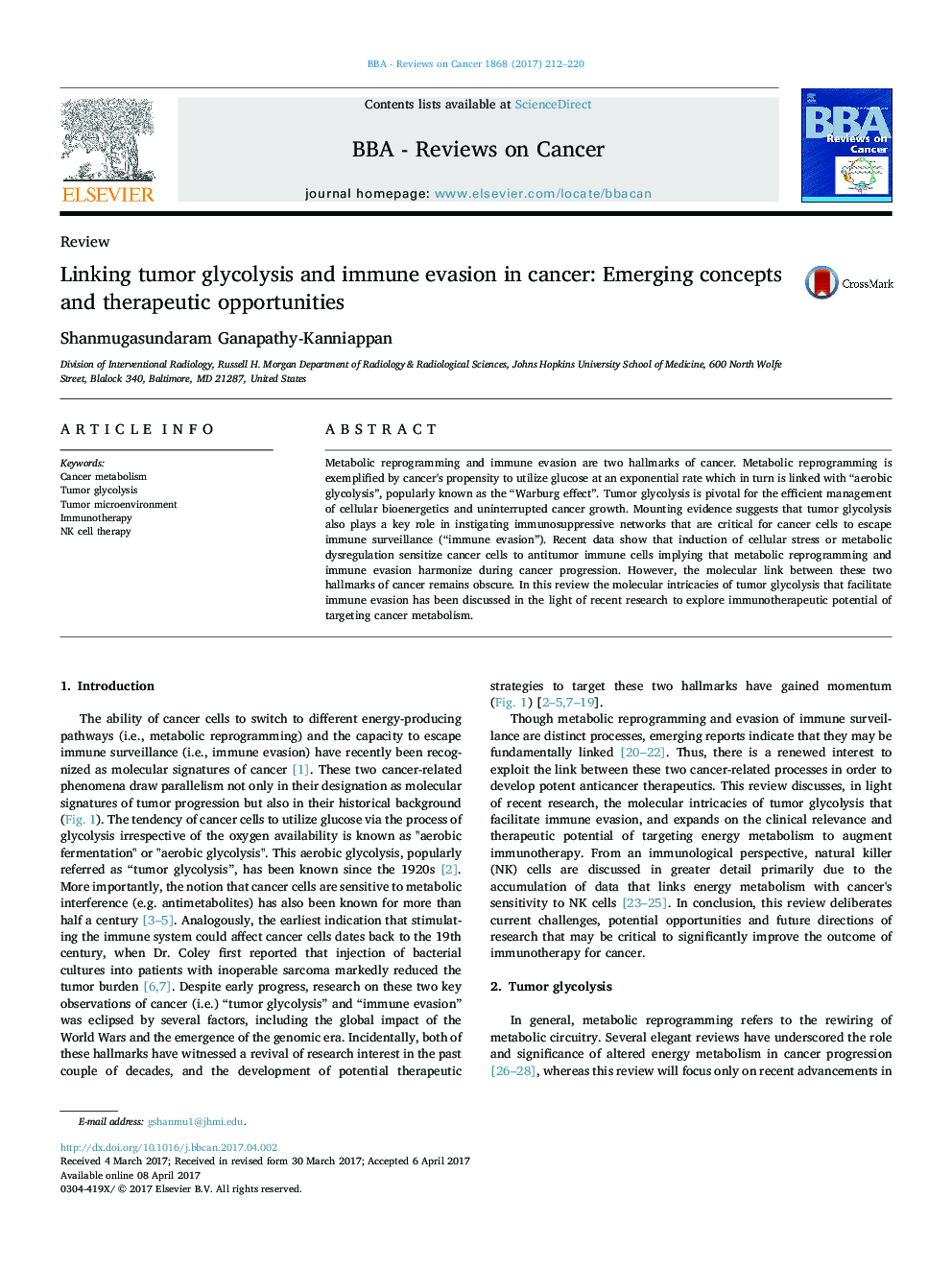| Article ID | Journal | Published Year | Pages | File Type |
|---|---|---|---|---|
| 5524011 | Biochimica et Biophysica Acta (BBA) - Reviews on Cancer | 2017 | 9 Pages |
Metabolic reprogramming and immune evasion are two hallmarks of cancer. Metabolic reprogramming is exemplified by cancer's propensity to utilize glucose at an exponential rate which in turn is linked with “aerobic glycolysis”, popularly known as the “Warburg effect”. Tumor glycolysis is pivotal for the efficient management of cellular bioenergetics and uninterrupted cancer growth. Mounting evidence suggests that tumor glycolysis also plays a key role in instigating immunosuppressive networks that are critical for cancer cells to escape immune surveillance (“immune evasion”). Recent data show that induction of cellular stress or metabolic dysregulation sensitize cancer cells to antitumor immune cells implying that metabolic reprogramming and immune evasion harmonize during cancer progression. However, the molecular link between these two hallmarks of cancer remains obscure. In this review the molecular intricacies of tumor glycolysis that facilitate immune evasion has been discussed in the light of recent research to explore immunotherapeutic potential of targeting cancer metabolism.
